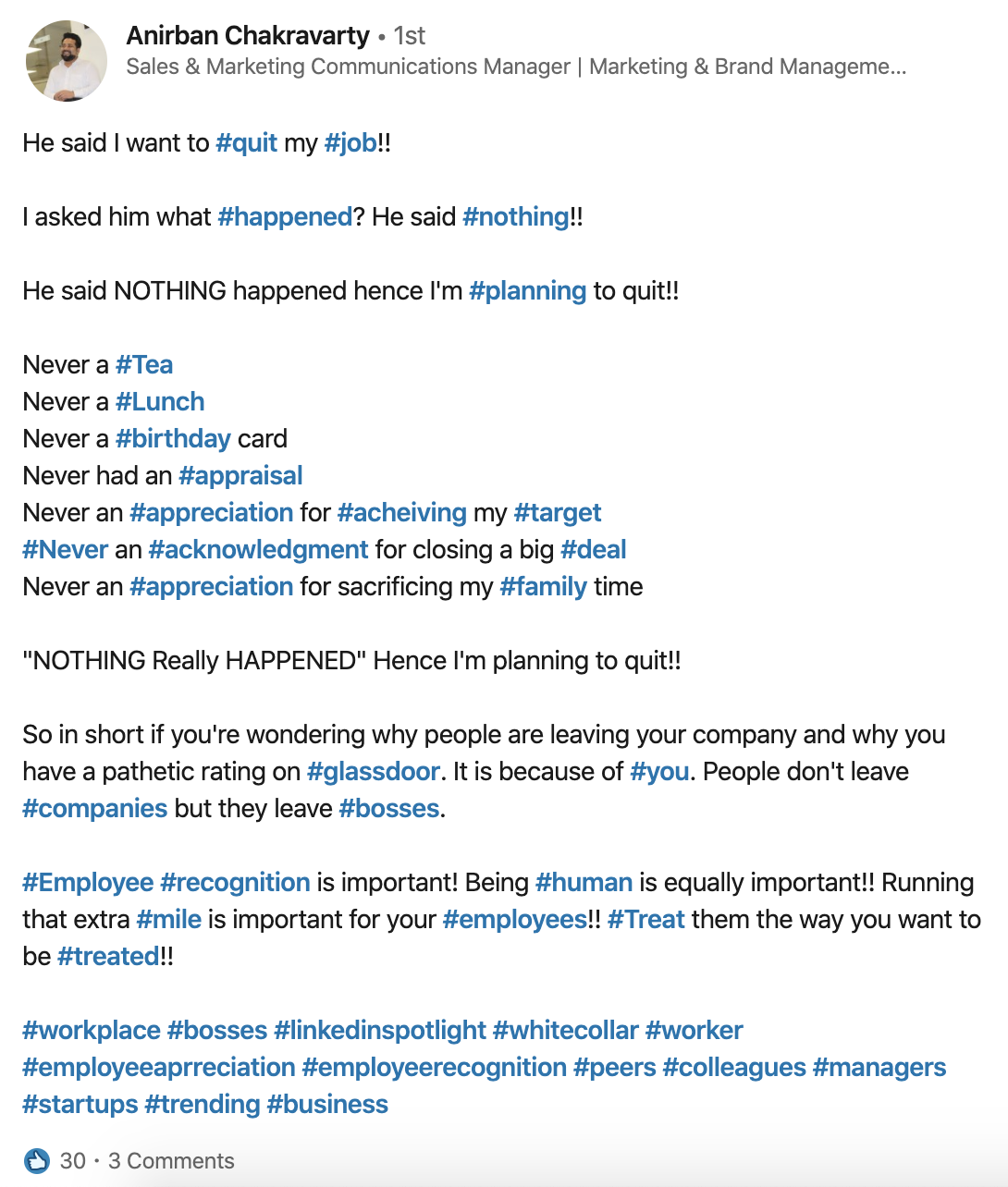
He said I want to #quit my #job!!
I asked him what #happened? He said #nothing!!
He said NOTHING happened hence I’m #planning to quit!!
Never a #Tea
Never a #Lunch
Never a #birthday card
Never had an #appraisal
Never an #appreciation for #acheiving my #target
Never an #acknowledgment for closing a big #deal
Never an #appreciation for sacrificing my #family time
“NOTHING Really HAPPENED” Hence I’m planning to quit!!
So in short if you’re wondering why people are leaving your company and why you have a pathetic rating on #glassdoor. It is because of #you. People don’t leave #companies but they leave #bosses.
Employee #recognition is important! Being #human is equally important!! Running that extra #mile is important for your #employees!! #Treat them the way you want to be #treated!!
This post was from a friend of mine on LinkedIn. Thanks for your words of wisdom Anirban!
The other day, a colleague and I were discussing various forms of employee engagement and how to tell if the organization is doing well. We basically landed on discussing the ROI of employee engagement.
I know that leaders are busy people and most employee engagement related tasks probably seem like they don’t provide a strong return on their investment of time.
Did you know that it is better to have a disengaged employee than an employee who gets ignored? They don’t know if they did well or not. Did you ever get my email? How did that meeting go that I prepared for you?
Gallup has repeatedly found that leaders who complement their teams enjoy extremely low (1 percent) employee disengagement levels. As you’d expect, when leaders criticize employees, disengagement levels rise to 22 percent.
However, get this – disengagement almost doubles to a shocking 40 percent when leaders ignore their direct reports.
Negative response better than no response at all. The prevailing thinking has been that even negative feedback from a leader demonstrates some level of care and interest in the employee, making it more welcomed than no feedback or attention at all.
Being excluded impacts far more than engagement levels – being ignored at work is worse for an employee’s physical and mental well-being than harassment or bullying.
Employees who experienced exclusion are significantly more likely to report health problems, a degraded sense of workplace belonging and commitment, and a stronger intention to quit their jobs. According to Gallup research, exclusion feels threatening and causes defensive reactions to kick in, as well as feelings of withdrawal and the need to form alliances. Humans are social animals, so exclusion is often perceived as a form of punishment, especially when it originates from a leader.
While leaders rarely intend to exclude individuals, many are unaware they’re excluding people who have a different perspective, set of interests, self-identity or expertise.
It’s important to proactively build a culture where every member of the team is seen. Not only appreciated for their contribution and perspective, but also noticed for areas of improvement. The saying, “If you have nothing good to say, don’t say anything,” does not work at work because there isn’t any return on investment in ignoring employees.
